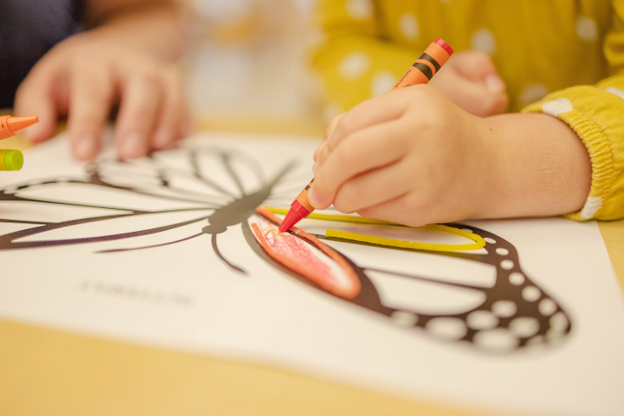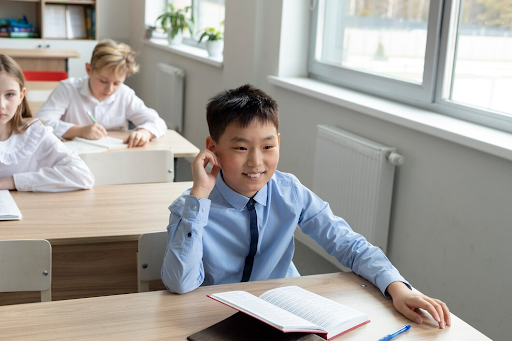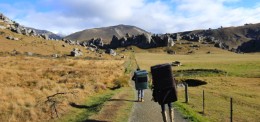Outdoor education pushes learning past the usual classroom, letting students engage with nature while strengthening both academic and personal abilities.
By moving beyond familiar indoor walls, young people benefit from hands-on experiences that spark curiosity, creativity, and a deeper sense of their surroundings. Research shows these nature-based activities boost focus, enhance academic achievement, and sharpen both problem-solving skills and social connections.
Lessons in outdoor locations support overall youth development by addressing physical, mental, and emotional health all at once. These environments accommodate different learning styles, encourage group efforts, and allow unstructured play, which collectively nurture well-rounded growth.
This method helps students build resilience, form strong bonds with their peers, and develop a lasting appreciation of nature. In turn, it lays a strong foundation for continuous learning and personal well-being.
Boosting Academic Engagement
Outdoor education, such as the programmes offered by AISL Outdoor, creates a setting that sharpens student focus by minimising the typical distractions of the classroom. Research shows that pupils in outdoor lessons stay engaged for longer, with some studies observing gains of up to a full standard deviation compared to indoor groups.
Being outside also accommodates a range of learning preferences. The environment naturally blends auditory, kinaesthetic, and visual elements, so students absorb material by listening, doing, and seeing real examples.
Exposure to practical, real-life tasks in outdoor settings has been linked to stronger problem-solving skills and motivation. When students see how lessons apply in tangible ways, complex ideas become clearer, prompting more independent, critical thinking.
This approach boosts their problem-solving abilities and sparks persistent enthusiasm for learning, ultimately reinforcing their overall academic engagement.
Physical and Mental Well-being
Regular sunlight is brilliant for improving sleep and mood. It helps reset the body’s sleep-wake cycle, eases stress, and encourages a cheerier outlook.
Soaking up rays increases vitamin D production, which helps support your immune defences and adds to a greater sense of well-being.
Being in green spaces also gets people up and moving—whether that’s strolling, playing games, or trying organised sports. This active time strengthens heart health, builds fitness, and counteracts the downsides of too much sitting.
Spending moments in nature boosts mental health too. Young people who explore the outdoors often enjoy stronger self-esteem and feel less anxious. The calming scenery can lower stress hormones, helping them bounce back emotionally and feel more confident.
Social-Emotional Growth and Collaboration
Outdoor group tasks help young people practise key communication skills by giving them a genuine setting to speak up and genuinely listen. Conflicts that crop up during shared goals are tackled openly, which spurs children to work out answers and appreciate different opinions with a positive mindset.
Group problem-solving challenges and team games in nature encourage them to leave their comfort zones, showcasing the unique growth opportunities that outdoor education provides. Jumping into new social situations often fuels empathy and a broader view of others’ perspectives.
Heading out of familiar places allows children to talk with peers without the usual safety nets of their routine. This short-term break from home or school gives them a taste of independence and highlights how working together can be more effective than going solo.
They begin to spot how their actions influence everyone else, and they adapt their style of communicating so the whole team benefits. Research into outdoor education shows that these interactions shape balanced individuals who can handle friendships and group dynamics with greater confidence and skill.
Building Environmental Awareness and Life Skills
Experiencing local ecosystems up close turns abstract science lessons into concrete discoveries. By stepping outside, children observe nature’s delicate balance firsthand, strengthening what they’ve learned in the classroom with living examples.
This hands-on involvement in natural settings boosts academic knowledge and builds real-world abilities like observation and critical thinking.
Outdoor spaces naturally encourage flexible, cross-subject exploration. Educators can spark creative writing by focusing on the vivid sights and sounds of nature, while also weaving in maths concepts such as measurement and estimation.
Gathering leaves or stones, for instance, adds a practical twist to learning that blends observation and calculation. This versatility supports a reliable structure for synchronising different lessons without disruption.
Fostering a bond with nature early in life can inspire genuine care for the environment. Students who explore nearby habitats often gain an innate respect for living things, motivating them to embrace planet-friendly habits.
This direct contact with nature promotes accountability, empathy for the environment, and a willingness to protect it—providing children with valuable skills they’ll carry with them long after indoor classes resume.
Practical Ways to Integrate Outdoor Learning
Short, hands-on outdoor sessions can fit into daily routines without much upheaval. For example, a simple 15- to 30-minute walk—whether around the school grounds or a local green area—allows children to engage with their surroundings while reinforcing classroom ideas.
In busier locales, tapping into local parks or community gardens provides a budget-friendly way to use shared spaces. In rural districts, similar thinking applies, but there may be extra scope for immersive activities in more expansive natural areas. Teachers can handle these outings on different budgets by picking locations that are easy to reach and suit the planned lessons.
When setting up outdoor learning, opt for well-organised programmes offered by trustworthy groups. Reputable providers ensure sessions are carried out with clear educational aims and comprehensive health and safety guidelines. These programmes do more than deliver a structured learning environment—they also support positive, supervised trips, making everyone feel assured about combining outdoor lessons with the standard curriculum.








